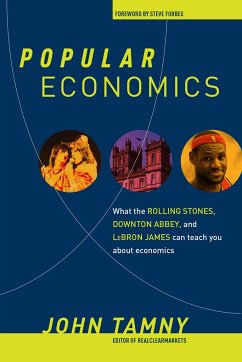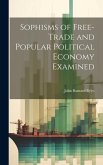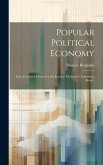Economics is really pretty basic. In fact, it's everywhere you look. But a lot of people want you to think economics is terribly complicated. Politicians, bureaucrats, special-interest groups, and economists themselves have managed to turn common sense and simple cause-and-effect into a mystery religion. And they want you, the ordinary taxpayer, to keep a respectful distance. John Tamny is here to break the spell with Popular Economics. You don't need a Ph.D. and a graphing calculator to understand the economic lessons that are all around us--just the self-confidence to see what's in front of your nose. Stimulating economic growth is pretty simple, too. It all comes down to Taxes, Regulation, Trade, and Money. Get these four things right, and economic growth would explode. Taxes. Think of taxes as a penalty for working. If Great Britain raises Mick Jagger's income tax rate high enough, the Rolling Stones are going to find somewhere else to live, and the amount of taxes Great Britain collects from Mick will be zero. Regulation. The smartest people in any industry aren't the regulators, they're the people making a living at it. Regulation is based on the fantasy that the mediocre can effectively direct the best and brightest. That's like expecting the Appalachian State football team to beat Michigan every time they play. Trade. LeBron James could be a pretty good tight end in the NFL, but in basketball he's the best in the world. So it makes no sense for him to play football. That's called comparative advantage, and it's the foundation of free trade. Money. Imagine playing football if the length of a yard changed on every play. Yet that's how we run our economy. The value of the dollar--the economy's unit of measure--changes in value every minute. Government tries to convince us that free markets are dangerous. To believe that, we have to ignore reality, and plenty of professional economists are trying to help us do that. But Popular Economics shows that you're an economist too--and a better one than you think.
Hinweis: Dieser Artikel kann nur an eine deutsche Lieferadresse ausgeliefert werden.
Hinweis: Dieser Artikel kann nur an eine deutsche Lieferadresse ausgeliefert werden.








